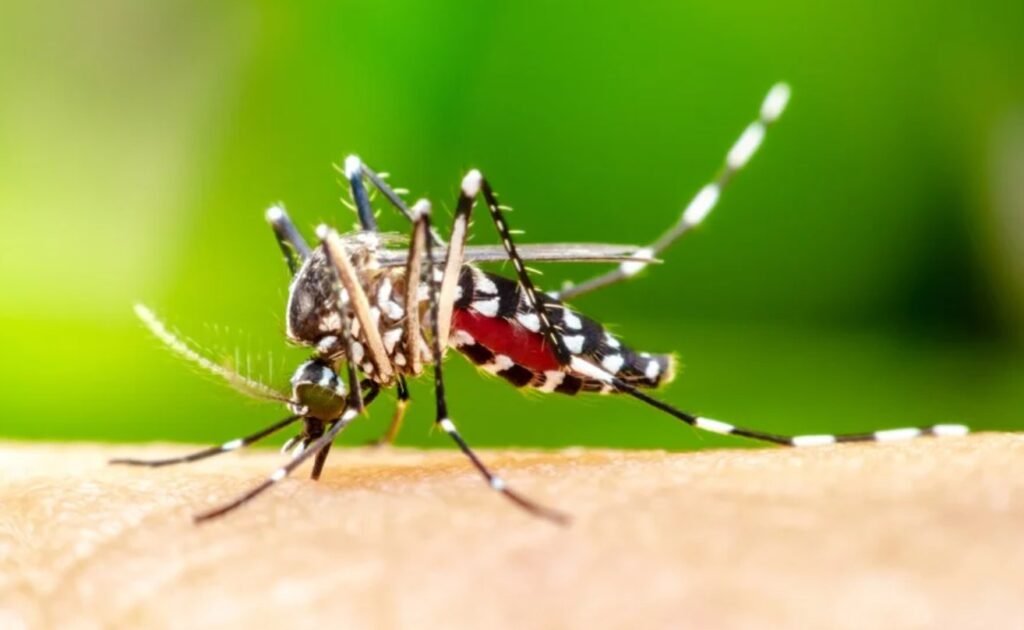The US Food and Drug Administration (FDA) has given its approval for Ixchiq, the first vaccine to prevent disease caused by the chikungunya virus. The vaccine is intended for adults who are at an increased risk of exposure to the virus, which is transmitted by infected mosquitoes.
What is chikungunya and why is it a threat?
Chikungunya is a viral disease that causes fever and joint pain, which can last for months or years in some cases. Other symptoms may include rash, headache, and muscle pain. There is no specific treatment for chikungunya, and the only way to prevent it is to avoid mosquito bites.

Chikungunya is an emerging global health threat, with at least 5 million cases reported in the past 15 years. The virus is endemic in tropical and subtropical regions of Africa, Southeast Asia, and parts of the Americas, but it has also spread to new geographical areas due to climate change and human travel. In 2014, the first local transmission of chikungunya was reported in the US, in Florida, Texas, Puerto Rico, and the US Virgin Islands.
Chikungunya can also cause severe complications and death in some groups, such as newborns, older adults, and people with underlying medical conditions. Transmission of chikungunya virus to newborn babies from pregnant individuals with viremia (virus present in the blood) at delivery has been reported and can cause severe, potentially fatal chikungunya virus disease in newborns.
How does Ixchiq work and what are its benefits?
Ixchiq is a single-dose vaccine that contains a live, weakened version of the chikungunya virus. The vaccine stimulates the immune system to produce antibodies that can protect against the disease. The vaccine was developed by Valneva Austria GmbH, a European biotechnology company.
The FDA granted Ixchiq fast track and breakthrough therapy designations, which are intended to expedite the development and review of drugs and vaccines that address serious or life-threatening conditions. The approval of Ixchiq is based on two clinical studies conducted in North America, involving about 3,500 participants who received the vaccine and about 1,000 who received a placebo. The studies showed that Ixchiq was safe and effective in preventing chikungunya disease.
The approval of Ixchiq is an important milestone in the prevention of a potentially debilitating disease with limited treatment options. The vaccine could reduce the burden of chikungunya on individuals and communities, especially in regions where the virus is prevalent or emerging.
What are the possible side effects and limitations of Ixchiq?
As with any vaccine, Ixchiq may cause side effects in some recipients. The most common side effects reported by vaccine recipients were headache, fatigue, muscle pain, joint pain, fever, nausea, and tenderness at the injection site. In addition, some recipients experienced severe or prolonged chikungunya-like adverse reactions that prevented daily activity and/or required medical intervention. Two recipients with severe chikungunya-like adverse reactions were hospitalized. Some recipients also had prolonged chikungunya-like adverse reactions that lasted for at least 30 days.
The prescribing information for Ixchiq includes a warning to inform health care providers and patients that the vaccine may cause severe or prolonged chikungunya-like adverse reactions. The FDA is requiring the company to conduct a postmarketing study to assess the serious risk of these adverse reactions following administration of Ixchiq.
Another limitation of Ixchiq is that it is not known whether the vaccine virus can be transmitted from a pregnant person to their newborn, and whether the vaccine virus can harm a newborn. The warning advises health care providers to weigh the risk of the virus to the patient, as well as the gestational age and risks to the fetus or neonate from the disease.
Ixchiq is not approved for children under 18 years of age, as the safety and effectiveness of the vaccine in this population have not been established. The vaccine is also not recommended for people who are immunocompromised or have a history of severe allergic reactions to any component of the vaccine.
Where can I get more information about Ixchiq and chikungunya?
For more information about Ixchiq, you can visit the FDA website or the Valneva website. You can also contact your health care provider if you have any questions or concerns about the vaccine.
For more information about chikungunya, you can visit the CDC website or the WHO website. You can also learn how to prevent mosquito bites and protect yourself from chikungunya and other mosquito-borne diseases.
